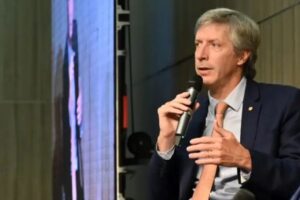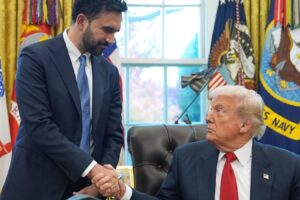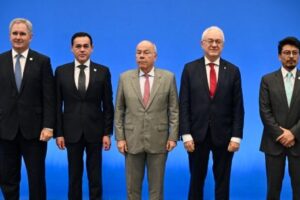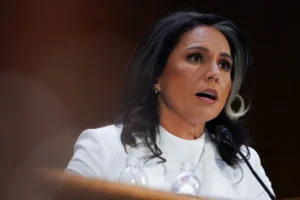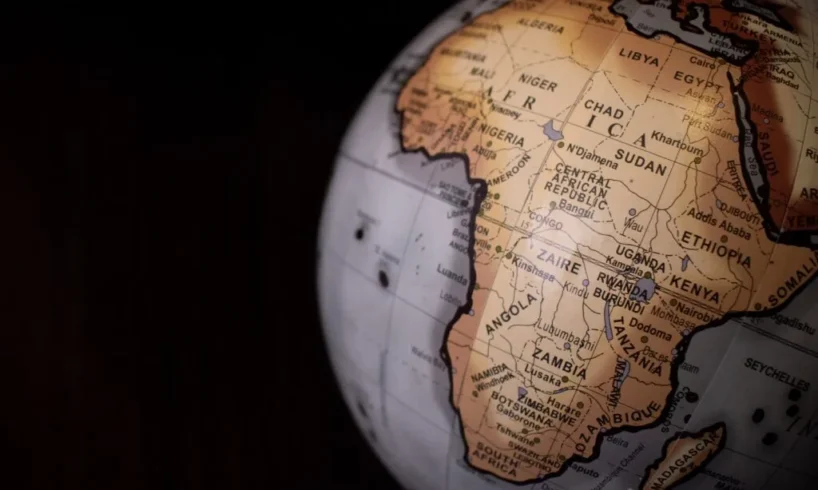
Africa’s regions saw significant developments today across business, politics, and security. In North Africa, Algeria was thrown into turmoil by a fugitive spy chief, Mali and Algeria clashed legally over a downed drone, and Morocco deepened strategic ties with Washington.
East Africa witnessed a push for a Sudan truce amid war, a UN exposé of South Sudan’s corruption-fueled crisis, and a controversial election ban in Tanzania.
West Africa grappled with France ending counter-terror links with Mali, Guinea’s junta cementing its rule via referendum, and Ivory Coast’s ex-president upending election dynamics.
Central Africa saw Chad’s leader move to extend his power indefinitely, while Cameroon’s president faced public opposition from his own daughter.
Southern Africa is on edge as Malawi’s election outcome is disputed, South Africa seeks to repair U.S. trade relations, and Zimbabwe’s economy got a rare boost from tobacco and gold.
North Africa
Algeria Hunts Fugitive Ex-Spy Chief
Algeria has launched a massive manhunt after former internal intelligence chief Nacer El Djinn reportedly fled the country by boat to Europe with loyal officers. Authorities fear he could leak secrets implicating top generals and destabilize the regime.
Why it matters: The escapade exposes ferocious infighting within Algeria’s security elite. El Djinn’s disclosures could destabilize the fragile power balance in a country already grappling with economic woes and public discontent.
Mali Takes Algerian Drone Dispute to World Court
Mali has petitioned the International Court of Justice, accusing Algeria of shooting down a Malian surveillance drone along their border. Algiers denies the claim and rejects the court’s jurisdiction.
Africa Intelligence Brief — September 19, 2025. (Photo Internet reproduction)
Why it matters: The case highlights escalating tensions between Mali’s junta and Algeria. It underscores the limits of international law when a state refuses the court’s authority.
Morocco Boosts Nuclear Security Cooperation with US
Morocco and the United States agreed to strengthen cooperation on nuclear security through joint training and advanced detection technology. The initiative builds on Morocco’s top-rated safety record.
Why it matters: The deal bolsters counter-proliferation in North Africa, supports Morocco’s civilian nuclear ambitions, and cements Rabat’s role as a reliable security partner.
East Africa
Regional Powers Push for 3-Month Truce in Sudan War
Egypt, Saudi Arabia, the UAE, and the US jointly called for a three-month humanitarian truce to halt Sudan’s war and open a nine-month transition to a civilian government.
Why it matters: If enacted, the truce could ease Sudan’s spiraling crisis of violence, hunger, and displacement. The high-level initiative signals growing pressure to end Sudan’s war, though lasting peace remains uncertain.
Corruption Blamed for South Sudan’s Humanitarian Crisis
A UN inquiry accused South Sudan’s elites of systemic corruption that diverted billions from oil and aid revenues while millions face famine and lack basic services.
Why it matters: The report exposes how predatory governance is fueling collapse in Africa’s youngest nation. Without reform, South Sudan’s promised transition could fail, worsening regional instability and donor fatigue.
Tanzania Bars Opposition Candidate, Clearing Path for Ruling Party
Tanzania’s electoral commission disqualified opposition candidate Luhaga Mpina for the second time, leaving President Samia Hassan virtually unopposed.
Why it matters: The move undermines election credibility and deepens concerns of democratic backsliding in a country once seen as a regional model.
West Africa
France Halts Anti-Terror Ties with Mali over Arrested Agent
France suspended all counterterrorism cooperation with Mali after Bamako detained a French national on espionage charges. Both sides expelled diplomats in retaliation.
Why it matters: The rupture strips Mali of a key counter-insurgency partner and widens the rift between Sahel juntas and Western powers, pushing Mali closer to Russia.
Guinea’s Referendum Poised to Cement Junta Rule
Guinea is preparing for a referendum that would allow coup leader Mamady Doumbouya to run for president and extend terms. Pro-junta rallies dominate while opposition is silenced.
Why it matters: The referendum is expected to entrench military power under a civilian veneer, raising fears of authoritarianism and undermining Guinea’s democratic trajectory.
Gbagbo Withholds Support in Ivory Coast’s Election Showdown
Former president Laurent Gbagbo announced he will not endorse any candidate after being barred from running. This leaves the opposition fragmented ahead of elections.
Why it matters: Gbagbo’s refusal weakens opposition unity and tilts the field toward Ouattara, but also undermines electoral legitimacy and risks unrest among Gbagbo’s supporters.
Central Africa
Chad Scraps Term Limits as Déby Consolidates Power
Chad’s parliament approved constitutional changes removing presidential term limits and extending terms to seven years, paving the way for Gen. Mahamat Déby to rule indefinitely.
Why it matters: The reforms entrench dynastic-style rule, ensuring Déby’s grip on power while dashing hopes for democratic transition.
Cameroon’s First Daughter Urges Voters to Oust President
Brenda Biya, daughter of President Paul Biya, urged citizens “not to vote for [her] father” in the upcoming election. The unprecedented family dissent has energized opposition voices.
Why it matters: The rebuke highlights generational frustration with Paul Biya’s decades-long rule. It chips at his aura of invincibility and raises pressure for political change.
Southern Africa
Malawi’s Election in Limbo as Rivals Claim Victory
Both incumbent Lazarus Chakwera and challenger Peter Mutharika claimed victory before official results were announced. The electoral commission rebuked both camps as tensions rose.
Why it matters: The disputed claims risk plunging Malawi into crisis, testing its fragile democracy and institutions amid severe economic hardship.
South Africa Seeks to Mend US Trade Rift Amid Tariffs
South Africa held constructive talks in Washington to lift punitive tariffs and reset strained trade ties. A roadmap for negotiations was agreed.
Why it matters: Restoring stable trade with the US is critical for jobs and investor confidence in Africa’s most industrialized economy.
Zimbabwe Ups Growth Forecast on Tobacco and Gold Boom
Zimbabwe raised its GDP growth forecast to 6.6% on the back of bumper tobacco crops and high gold prices.
Why it matters: The windfall offers rare relief for Zimbabwe’s economy, though analysts caution sustainability is doubtful given structural weaknesses and reliance on commodities.
